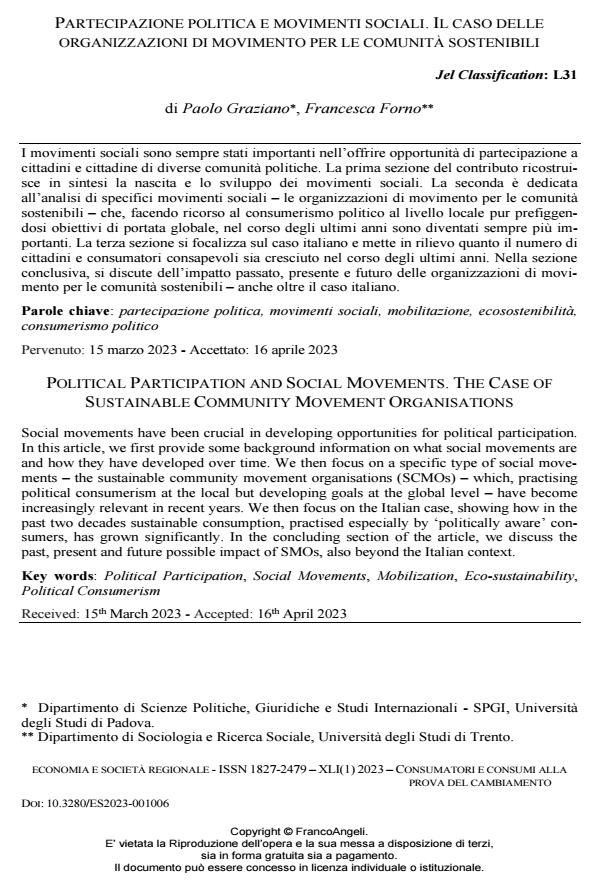Partecipazione politica e movimenti sociali. Il caso delle organizzazioni di movimento per le comunità sostenibili
Journal title ECONOMIA E SOCIETÀ REGIONALE
Author/s Paolo Graziano, Francesca Forno
Publishing Year 2023 Issue 2023/1
Language Italian Pages 11 P. 71-81 File size 257 KB
DOI 10.3280/ES2023-001006
DOI is like a bar code for intellectual property: to have more infomation
click here
Below, you can see the article first page
If you want to buy this article in PDF format, you can do it, following the instructions to buy download credits

FrancoAngeli is member of Publishers International Linking Association, Inc (PILA), a not-for-profit association which run the CrossRef service enabling links to and from online scholarly content.
Social movements have been crucial in developing opportunities for political participation. In this article, we first provide some background information on what social movements are and how they have developed over time. We then focus on a specific type of social move- ments - the sustainable community movement organisations (SCMOs) - which, practising political consumerism at the local but developing goals at the global level - have become increasingly relevant in recent years. We then focus on the Italian case, showing how in the past two decades sustainable consumption, practised especially by ‘politically aware’ con- sumers, has grown significantly. In the concluding section of the article, we discuss the past, present and future possible impact of SMOs, also beyond the Italian context.
Keywords: Political Participation, Social Movements, Mobilization, Eco-sustainability, Political Consumerism
Jel codes: L31
Paolo Graziano, Francesca Forno, Partecipazione politica e movimenti sociali. Il caso delle organizzazioni di movimento per le comunità sostenibili in "ECONOMIA E SOCIETÀ REGIONALE " 1/2023, pp 71-81, DOI: 10.3280/ES2023-001006